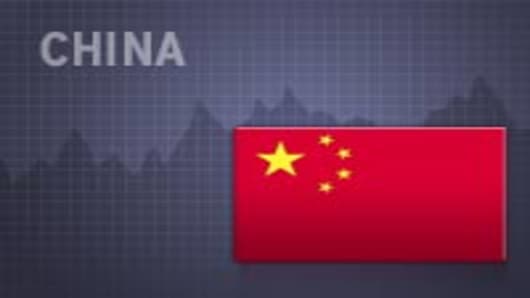Beijing's surprise increase in diesel prices will make truckers grumble, but for the first time in weeks they may be able to fill up without rationing or queues, and the easier supply of oil will likely bolster consumption.
The government said on Thursday it would raise low state-set caps on fuel pump prices by around 1,000 yuan a tonne, or nearly 20 percent, the first rise for nearly eight months and the steepest one-off hike ever.
Oil markets fell immediately on the news, settling 3.5 percent down on Thursday. Oil is currently trading at the $132 level in the Asian session.
But the market may be underestimating the appetite for oil from margin-squeezed refiners as the government plans to protect the poorest with direct subsidies and auto demand from China's newly rich middle-class surges.
"Perhaps somewhat counter-intuitively, it's not bearish," said Kevin Norrish at Barclays Capital in London. "At the margin it may help to support demand growth for diesel and gasoline as it alleviates shortages," he added.
China's oil majors PetroChina and Sinopec are obliged to sell fuel at often unprofitable state-set levels and get only ad-hoc subsidies to help balance their books.
Fuel prices had been unchanged since last November even as crude climbed by around $40 a barrel, so plants faced feedstock prices far above break-even levels. Many cut output as they plunged into the red, causing widespread shortages.
The jump in prices is expected unleash pent-up demand for crude from China's refiners by lifting their margins.
In a note, Goldman Sachs said the price hike was unlikely to significantly slow demand growth.
The investment bank said smaller refiners, which are unable to offset high feedstock prices with state subsidies, could start to reactivate.
"In the near term, the announced price hike will likely alleviate the current shortages and boost crude oil demand, as it should improve domestic refinery margins and incentivize increased refinery runs," the note said.
It added that after previous product prices hikes, China's imports of crude had risen.
Before the increase there were queues and dry pumps across the capital, and a tour bus driver was spotted begging assistants at one service station, rumored to offer supplies at illegally high prices, to let her buy at whatever cost.
"This price increase gets the refiners pretty close to profitability, and throughput should increase in the months ahead," said Trevor Houser, analyst at Rhodium Group in New York. "Don't expect much demand destruction...certainly not enough to outweigh the increase in output from improved economics."
Too Rich to Break
Beijing has pledged subsidies for the most vulnerable users, including farmers and fishermen, which should support their consumption. Economists say this is a better way to spend government money than handing cash to refiners.
"The low prices benefit everyone, including rich people that can afford high prices," the World Bank said in a report released before the increase, advocating a rapid raise to support energy efficiency policies.
But there is a second group of fuel users whose demand will likely also be undented -- the newly rich.
The fondness for powerful but inefficient sports utility vehicles (SUVs) now appears to be on the wane in the West as crude spirals towards $140 a barrel, and the credit crunch bites.
But China's middle classes are taking to its already crowded roads with a vengeance, and those who can afford to are in SUVs.
Sales of the gas guzzlers rose more than twice as fast as car purchases last year, up 50 percent to 357,400 units, compared with a 22 percent rise in car sales to 6.3 million units.
Even the surprise hike is unlikely to coax the nouveaux riche to take their cars off the road.
The speed of economic expansion outweighs much of the rise in oil prices, and depreciation on cars also means that once bought, owners like to drive them even if fuel is pricey.
"I don't think too much about oil prices, the main thing is the car's performance," said Mr Chao, a 52-year-old businessman shopping for a second car in an upmarket Landrover showroom. "A good car can upgrade your quality of life, reflect the excitement of being alive."




